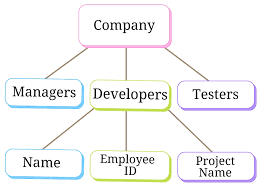
The World of Different Database Management Systems (DBMS)
Database Management Systems (DBMS) play a crucial role in storing, managing, and retrieving data efficiently. There are various types of DBMS available, each with its own unique features and functionalities. Let’s explore some of the most popular DBMS in use today:
Relational Database Management System (RDBMS)
RDBMS stores data in tables with rows and columns, following a structured format. Examples include MySQL, Oracle Database, and Microsoft SQL Server. RDBMS uses SQL (Structured Query Language) for querying and managing data.
NoSQL Databases
NoSQL databases are non-relational databases that provide flexible schema designs and horizontal scalability. Examples include MongoDB, Cassandra, and Redis. NoSQL databases are widely used for handling large volumes of unstructured data.
Object-Oriented Database Management System (OODBMS)
OODBMS stores data in the form of objects, making it easier to represent real-world entities directly in the database. Examples include db4o and ObjectDB. OODBMS is popular in object-oriented programming environments.
Column-Family Stores
Column-family stores organize data into columns rather than rows, allowing for efficient retrieval of specific columns without scanning the entire row. Examples include Apache HBase and Cassandra.
Graph Databases
Graph databases store data in nodes and edges to represent relationships between entities effectively. Examples include Neo4j and Amazon Neptune. Graph databases excel at handling complex relationships in interconnected data sets.
Each type of DBMS has its strengths and weaknesses, making them suitable for different use cases based on performance requirements, scalability needs, and data structures. Understanding the characteristics of different DBMS can help organizations choose the right database solution to meet their specific needs.
8 Essential Tips for Optimizing Different Database Management Systems
- MySQL
- Use indexes to improve query performance.
- PostgreSQL
- MongoDB
- Oracle Database
- SQL Server
- SQLite
- Amazon Aurora
MySQL
MySQL is a popular open-source relational database management system (RDBMS) known for its robust performance, scalability, and ease of use. It supports a wide range of applications, from small personal projects to large enterprise systems. With its support for SQL queries, transactions, and data security features, MySQL is a versatile choice for businesses looking to manage their data effectively. Its active community and extensive documentation make it easy for users to get started and troubleshoot any issues they may encounter.
Use indexes to improve query performance.
To enhance query performance across different Database Management Systems (DBMS), a crucial tip is to utilize indexes effectively. Indexes act as pointers to data within a database, allowing for faster retrieval of information based on specific criteria. By creating indexes on columns frequently used in queries, such as primary keys or commonly searched fields, DBMS can quickly locate and fetch relevant data, thereby boosting query performance. Implementing indexes strategically can significantly reduce the time it takes to execute queries and improve overall database efficiency across various types of DBMS.
PostgreSQL
PostgreSQL is a powerful open-source relational database management system known for its robust features, extensibility, and strong emphasis on standards compliance. It offers advanced capabilities such as support for complex queries, indexing, and transactions, making it a popular choice for enterprise applications and data-intensive projects. With a vibrant community of developers contributing to its ongoing development and maintenance, PostgreSQL continues to evolve with new features and enhancements that cater to a wide range of use cases.
MongoDB
MongoDB is a popular NoSQL database that offers a flexible and scalable solution for handling large volumes of unstructured data. Known for its document-oriented approach, MongoDB stores data in JSON-like documents, making it easy to work with dynamic schemas and complex data structures. With features such as high availability, horizontal scalability, and robust query capabilities, MongoDB is widely used in modern applications that require fast and efficient data storage and retrieval.
Oracle Database
Oracle Database is a powerful and robust relational database management system (RDBMS) known for its scalability, reliability, and comprehensive feature set. With support for SQL and PL/SQL, Oracle Database offers advanced data management capabilities, high performance, and security features that make it a popular choice for enterprise-level applications. Its ability to handle large volumes of data efficiently, along with built-in tools for backup and recovery, make Oracle Database a trusted solution for organizations seeking a secure and scalable database platform.
SQL Server
SQL Server is a robust and widely-used Relational Database Management System (RDBMS) developed by Microsoft. Known for its scalability, security features, and integration with other Microsoft products, SQL Server is a popular choice for organizations of all sizes. With support for advanced querying capabilities, high availability, and business intelligence tools, SQL Server empowers users to efficiently manage and analyze their data. Whether handling transactional workloads or running complex analytics, SQL Server offers a comprehensive solution for storing and retrieving data effectively.
SQLite
SQLite is a lightweight and self-contained relational database management system that is widely used in embedded systems, mobile applications, and small-scale websites. It requires minimal configuration and has a small footprint, making it easy to deploy and manage. Despite its compact size, SQLite supports standard SQL syntax and provides features like ACID transactions, triggers, and indexes. Its simplicity and versatility make it a popular choice for developers looking for a reliable and efficient database solution for projects with low to medium data storage requirements.
Amazon Aurora
Amazon Aurora is a high-performance relational database engine built for the cloud, offering the performance and availability of commercial databases at a fraction of the cost. It is compatible with MySQL and PostgreSQL, providing the benefits of both open-source databases with enhanced performance and scalability. Amazon Aurora’s architecture is designed for high availability and durability, making it an ideal choice for applications requiring low latency and high throughput. With features like automated backups, point-in-time recovery, and seamless scaling capabilities, Amazon Aurora simplifies database management in cloud environments while delivering exceptional performance for demanding workloads.
